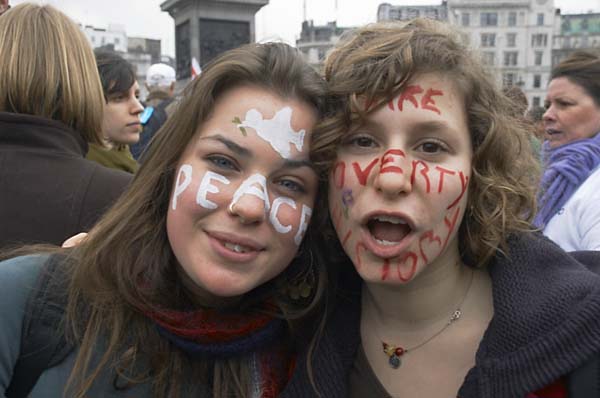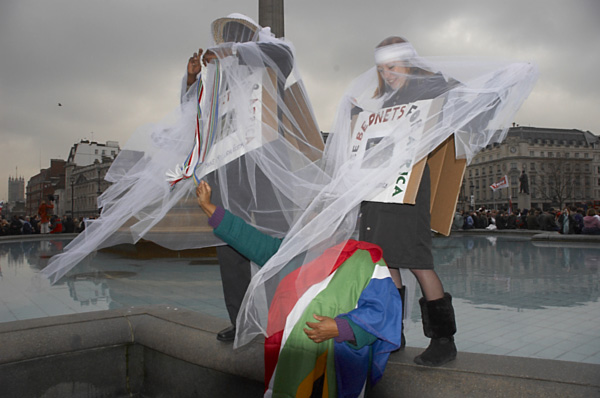Make Poverty History: Twenty years ago on February 3rd 2005 I was one of the 20,000 or so people who packed Trafalgar Square on a Thursday lunchtime to see and hear Nelson Mandela speak in the first major real event in the UK’s ‘Make Poverty History’ campaign.

Make Poverty History was a coalition of charities, religious groups, trade unions, campaigning groups and celebrities which had come together here and in a dozen other countries around the world to promote trade justice, to cancel the debts that were crippling poorer countries and to press for more aid and for this to be better targeted at improving the lives of people in the recipient countries.

The campaign in the UK had officially been launched on TV on New Year’s Day on the same day that Britain took over the Presidency of the G8 – and in July was to host a G8 summit that was supposed to be largely about poverty in Africa, but this rally was the first major national event.

I’d severely misjudged the numbers that would turn up for the rally, arriving only minutes before it was due to start and was unable to make my way through a densely packed crowd to anywhere near where the the speakers – including Mandela would be speaking.

This was an occasion when a long and heavy fast telephoto lens would have come in handy, but I’ve never owned one of these, preferring whenever possible to work at close range. But the relatively small zoom lens I had with a focal length of 200mm and a maximum aperture of only f5.6 did just about allow me to take some recognisable images of what was happening on the stage in the distance.

It helped that Nikon was still sticking to its conviction that its DX format, a sensor half the size of a 35mm frame was all that was needed for digital photography, giving the lens on my D70 the equivalent view of a 300mm on full-frame.

But I was please to have been able to capture some of the event – such as the handshake between Mandela and Bob Geldoff and children coming to meet Mandela, even if someone’s head got in my way a little of the time and those 6Mp images could perhaps have been just a little sharper.

Later I was able to return to focal lengths more in my comfort zone, with a fisheye to show the crowds and more normal wide-angle views of people in the crowds.

The ‘Make Poverty History’ movement lasted in the UK until 31st Januarly 2006, though relations between some of the 540 groups involved were very difficult. Oxfam in particular was seen as far to keep to follow a ‘New Labour’ line and some other major NGOs were also often felt to be insufficiently radical. Even though these groups dominated the campaign the TV adverts which had been aired at the start were soon banned by Ofcom as they were deemed to be “‘wholly or mainly political’ in nature, since they aimed to ‘achieve important changes'” – surely the whole point of the campaign.

Clearly the campaign had begun to disturb the rich and powerful who were feeling their privilege and profits from impoverishing the poor might be at risk. But although the campaign raised awareness of the problems its actual achievements were rather limited.

You can read more about the event and seem many more pictures on My London Diary
Flickr – Facebook – My London Diary – Hull Photos – Lea Valley – Paris
London’s Industrial Heritage – London Photos
All photographs on this page are copyright © Peter Marshall.
Contact me to buy prints or licence to reproduce.